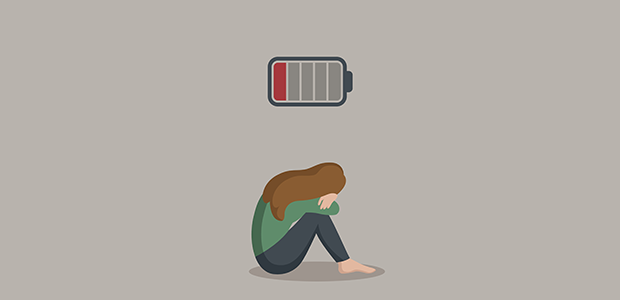
Research reveals the true cost of female entrepreneurs
Whilst the ever-growing funding disparity affecting female entrepreneurs is well-documented, its impact and the true lived experience of women building businesses within this inequitable system are much less well known.
A study released earlier this month (May 2025) is the first of its kind to examine the psychological reality behind female entrepreneurship, revealing both the hidden toll and surprising resilience strategies of women successfully building businesses in the UK.
‘The True Cost of Female Entrepreneurship,’ authored by Nonie White and Yvonne Biggins, combines rigorous qualitative interviews with extensive survey data from nearly 250 startup to scale-up female founders, to paint the most comprehensive picture to date of women's on-the-ground entrepreneurial experiences.
"What we've uncovered goes far beyond the typical funding gap narrative," says White. "We're seeing female founders operating in a persistent state of recovery deficit, managing disproportionate burdens with insufficient resources, yet still managing to build innovative, purpose-driven businesses. The question is – what might they achieve with equitable support?"
Key Findings:
- The financial anxiety epidemic: financial concerns generate the highest levels of acute stress among female entrepreneurs, with nearly half (48%) identifying cash flow as a major stressor and reporting the highest intensity stress reactions. This financial pressure takes a significant toll: 59% experience sleeplessness, 45% suffer from low mood, and 43% struggle with negative thinking patterns – cognitive impacts that directly undermine decision-making capacity and business performance
- The midlife revelation (and the second shift): challenging previous assumptions, 75% of our female entrepreneurs are aged 35-54, directly contradicting the commonly held belief that female entrepreneurship declines after 35. This also places them firmly in the domain of the ‘sandwich generation’ – having to balance work alongside the ‘second shift,’ during which they shoulder up to 75% of domestic chores and caring responsibilities for children and older relatives
- The loneliness epidemic: the research uncovered an alarming 66% of female founders experiencing extreme loneliness – a direct business liability linked to significantly lower performance
- The neurodiversity factor: 25% of respondents identify as neurodiverse, with ADHD entrepreneurs experiencing significantly higher stress patterns (81.6% reporting persistent anxiety).
- The hormonal impact: 21% of respondents identified changing hormones during perimenopause and menopause as a significant barrier to success – an overlooked factor in entrepreneurial wellbeing and performance
- The female founder paradox: despite how hard entrepreneurship is (for instance, 83% of female entrepreneurs report high stress levels and 54% experience burnout), paradoxically, most female founders still love it! 97% enjoy their entrepreneurial journey and 66% report high life satisfaction.
Most significantly, the report identifies six evidence-based practices that distinguish thriving female entrepreneurs from their struggling peers – a "Best Practice Blueprint" that could transform founder wellbeing and performance across the ecosystem. This research transcends superficial sticking-plaster advice like adopting ‘power poses' before pitching, revealing instead the profound interconnection between founder wellbeing, psychological resilience, and measurable business outcomes, establishing wellbeing as a strategic business imperative directly linked to entrepreneurial performance and success.
The Best Practice Blueprint includes:
- Leveraging professional coaching and peer support networks
- Prioritising health and fitness (with measurable performance benefits)
- Using nature as a proven stress-reduction tool (that also reduces loneliness)
- Making time for joy and fun outside of work for higher performance
- Practising mindfulness and spirituality
- Actively managing negative thinking patterns
"What's remarkable is that the most successful entrepreneurs aren't working harder – they're working differently," explains Biggins. "The blueprint we've discovered offers simple strategies that any founder can implement, regardless of their resources or circumstances." The study calls for systemic change while empowering individual entrepreneurs with practical tools for resilience. It provides clear recommendations for ecosystem players – including investors, accelerators, and educational institutions – on how to better support female entrepreneurs beyond just funding.
"This research represents a critical step toward understanding and addressing the unique challenges faced by female entrepreneurs," says Christine Hsieh, PhD, Entrepreneur in Residence at MIT's Martin Trust Center. "The identification of actionable, evidence-based strategies to enhance wellbeing and performance is especially powerful."

